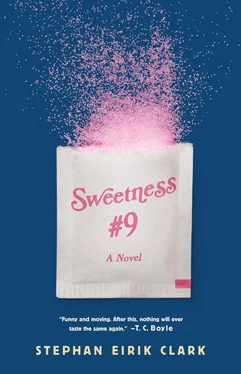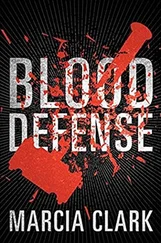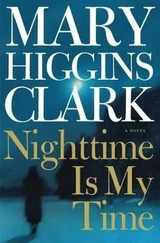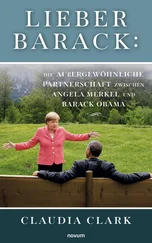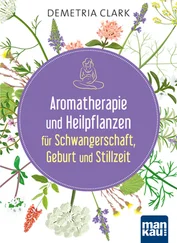“Lights out,” I said. “It’s past midnight.”
Priscilla was sitting on her bed, reading the Albanian report. She didn’t look up. She just grunted and turned the page.
I came over and sat down beside her. She was surrounded by a half circle of literature. In addition to the Albanian report in her lap, there was a Timothy Leary biography that showed the guru in all his wild-eyed glory on its cover, a history of social protest movements, and a copy of The Campus Crier, above the front fold of which was the headline SCHOOL DISTRICT PROFITS WHILE STUDENTS SUFFER. I skimmed through the first few paragraphs of the article, learning of a contract the school district had recently entered into with a national pizza chain. “Co-opting the cafeteria,” the article called it. Not a word about tax relief.
“Is this the first installment of your think-piece?” I said.
Priscilla shrugged. “It came out last week.”
She’d tied her hair back with rubber bands and applied a thick white cream to her face. I went to brush a lock from her forehead — it had fallen down into the cream — but she snapped her head away from me.
“What is it?” I said. A candy heart covered Timothy Leary’s third eye. Be Mine, it read. “Is it a boy?”
“Please.”
“What then? You’ve barely spoken to me since last night.”
She kept her eyes on the Albanian report. Dozens of transparent sticky notes stuck out from its pages. SIGN HERE, they read, the words held inside a hollow red arrow.
I looked over to the bookshelf beside her computer desk. Its top- and bottom-most shelves were given over to books documenting her increasing skepticism of food, politics, and culture, but in between was the anachronistic bric-a-brac of a childhood already gone by: a teddy bear that wore a pink bow around its neck, a framed picture of Priscilla as a cheerleader, her baby book, and a snow globe I’d given her after attending a conference in Montreal.
“Are you angry?” I said. “I’d understand it if you were.”
Finally, she looked up. “Why should I be?” she said. “You’re obviously suffering from prolonged exposure to Sweetness #9. You’re sick, Dad. The anxiety and the apathy. You need help.”
Though I didn’t believe this, it touched me all the same. She was like a little girl again, if only for a moment. Worrying about her father!
“I’ll be fine,” I told her. “You watch. When I get my CAT scan next week, they’ll just tell me to drink more water or take a multi-vitamin.” I gave her knee a reassuring shake.
“And E? He just needs more water? How many weeks now without a verb? How many weeks before we finally do something?”
I looked down at the Albanian report. Someone had already gone over it with a blue highlighter. Priscilla held a pink one at the ready.
“Everything will be fine,” I said.
She snorted. I looked back to her bookcase, wishing I could tell her what she needed to hear, but knowing I couldn’t. This wasn’t cancer we were talking about, some dark mass that a doctor could point to on a back-lit x-ray while plotting a plan of attack. What was troubling my son was more like Epstein-Barr, a new and perhaps still unnamed condition as mysterious as the human soul. No verbs? I would have thrown a kidney at it if it would have helped, but what could I do?
“Listen. An old college friend of mine is working on the Human Genome Project. I’ll give him a call and see what he has to say, and then maybe take your brother to see Dr. White. We’ll get it figured out, okay? We’ll get him an EEG, an EKG, a PET, a CT, an MRI — we’ll fight this thing with information, do you hear? You just have to think positive. Can you do that?”
“He needs to be detoxed,” she said, as if she hadn’t heard any of this. “All the chemicals have built up in his brain, blocking the connections. You need to make him go on the Rosicrucian diet with me. We all should do it.”
“Priscilla, do you really believe your brother would go along with that?”
“He’ll learn. We have to lead by example.”
I was shaking my head. “If he took a brown bag of macrobiotic treats to school each day, he’d trade it — at a loss — on the playground, then sneak something at a friend’s house, or refuse to eat anything at all. Is that what you want?”
“He’s not the only one who needs it. Mom’s been sleep-eating.”
“What? What do you mean?”
I listened in disbelief as she said she’d come out into the kitchen no fewer than three times in the last couple of months and seen Betty with her hand in the breadbox.
“Carbs? Your mother’s been eating carbs?”
“I tried to stop her one night, but it only embarrassed her. She woke up and pretended to sleepwalk upstairs. It’s all in here,” she said, tapping at a highlighted section of the Albanian report: “‘Sweetness #9 obstructs the carbohydrate-induced synthesis of serotonin, which is needed to regulate cravings and normalize the body’s intake of food.’ Don’t you get it? It triggers the primitive desire to eat.”
Her green eyes were like vast suicide windows she’d flung open before me. I sat before them transfixed.
“We’ve all OD’d,” she said. “Sleep-eating, obesity, a rise in certain aphasias, anxiety.”
“I’m not anxious anymore,” I said. “I feel much better now.”
“Your eye still twitches.”
I reached for it, wondering if Botox was the answer. “And so what about you?” I said. I figured we might as well have it out. “What does the Albanian report say about you?”
I expected a spirited defense. I expected her to tell me she was the only healthy one, protected by the umbrella of a vegan diet. Instead, she sat there like a woman on a park bench in the rain.
“I’m depressed,” she said.
And the simplicity of that message — it pierced my heart like a well-driven nail.
I sat there silently for longer than I would have liked, and when I did speak, I wasn’t satisfied by what I’d settled on saying. “Just concentrate on your work.” What else could I say or do? “Write the best think-piece you can. Nail me to the wall if you’d like.”
This got a smile out of her, but then she wiped at the tears that were cutting channels in her white facial cream and told me she’d quit.
“ What? The paper? When?”
“Yesterday. Me and Sarin.”
“But why?”
“Some parent,” she said, and then amidst the sobs and mumbling it came out. A man who worked for ConAgra or Sysco or Monsanto hadn’t appreciated the story he’d seen in his son’s high school paper. He’d asked the principal about fact-checking, and he’d used the word libel, and after saying he’d be reading the following installments with great interest, the principal called the girls into his office, along with their journalism teacher, and said they’d need to clear everything through legal from now on.
“Our adviser suggested we switch to the sports page. So we quit.”
“Is this why you were so quiet?”
She shrugged. “It doesn’t really matter. People only believe what they want to believe anyway.”
I reached for her knee again. I’d never heard this from her before; she sounded so adult-like, so cynical. “It’ll be okay,” I said.
But she shrank away from me, pulling her legs up into her chest. “Will you stop saying that? It’ll only be okay if we do something. How can you allow Sweetness #9 to stay in this house?”
I envied her certainty, her quickness to isolate an enemy and formulate a plan of attack. Get rid of it and we’ll be better! She viewed life as a Hollywood producer does, as a thing with three acts and the truth. But I’d lived with the problem long enough to wonder what good it would do to raise your pitchfork and go running off after Frankenstein’s monster if there’d always be another monster waiting for you in the shadows at home.
Читать дальше
